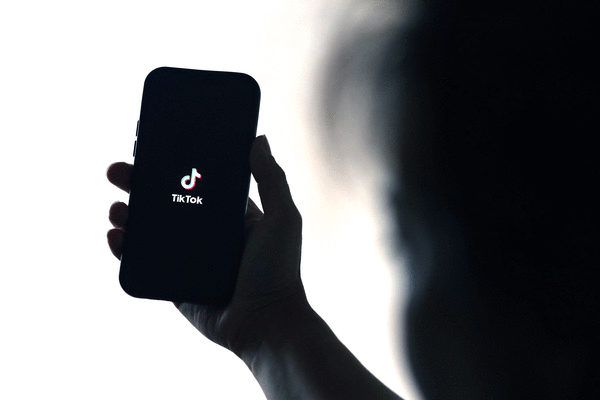Caught Between Love and Ethics: Kendra Hilty's TikTok Therapy Saga Divides Opinions
18 August 2025

Introduction
So, let's dive right into this whole deal—seriously, have you heard about the lady on TikTok who's fallen head over heels for her shrink? Yup, you heard that right. Kendra Hilty, that's her name, has been blowing up the internet with not one, not two, but twenty-five TikTok videos spilling the beans on her four-year therapy saga.
Most of these heart-to-hearts happened over Zoom, where she also got her meds prescribed by this dude who's apparently now the center of her love drama. Can you believe it? Midway through their digital shrink sessions, she drops the bomb—she's got the hots for him. And it's not just some idle crush; she genuinely thinks the guy's been playing into it and enjoying the whole thing, as per her therapist and a ChatGPT she's named Henry. Seriously, what?
The Internet's Reaction
Seems like a wild ride, right? It's crazy how many people have tuned in. The general buzz isn't even about this psychiatrist's ethics or whatever—he's kept his lips sealed, smart guy—but about Kendra's vivid recounts and her reading into every little encounter. Makes you wonder what really went down, huh?
The internet did its thing, of course. The feedback wasn't all cheers and claps. She faced a ton of backlash that got so intense, she had to turn off her comments. Social media can be savage like that. And sure enough, the big media platforms picked up on the story, diving into this 'unboxing' frenzy.
Kendra's Personal Struggles
Now, unlike Reesa Teesa—remember her? The gal who married Mr. Pathological Liar and then got a TV show out of it—Kendra hasn't exactly gotten the same sympathy wave. Talking to People magazine, she mentioned how she's been slammed with nonstop bullying and even threats, though there's a handful of DMs thanking her for her boldness. And get this—some folks have even tossed accusations of racism her way because the psychiatrist is Black, along with calling her narcissistic and, um, a bit cuckoo. She's open to a TV or movie deal, though—no surprise there.
Social Media's Role
Listen, her story does stir up a lot of feelings. I first caught wind of it from a buddy who was all concerned about young folks turning to ChatGPT as their go-to therapist—yeah, that's a thing now. And it's worrisome enough that places like Illinois, Utah, and Nevada have slammed the brakes on using AI for mental health therapy. He texted me saying, 'Dude, there's this woman on TikTok having a major meltdown thanks to ChatGPT.' Sounds like a mess, right?
From where I stand, it looks like both Kendra and the rest of us could use a little less social media drama. It's well-documented how these platforms can mess with your head, yet here we are, glued to our screens watching someone else's therapy sessions turn into a public spectacle. Why do we do it? Maybe it's the same reason we can't help but watch car crashes or reality TV—it's alluring and somehow, it pulls us in, making us forget they're real people on the other end.
The Dilemma of Public Sharing
It's one thing to follow a scripted drama; it's a whole other ball game when you're watching someone's live breakdown. And it's not just about being a nosy parker. We've seen how smartphones and the internet let people expose real problems like racism and sexism, which is great. But for every impactful post, there's a bunch just showcasing someone's worst moments. We need to ask—are we treating these shared human experiences with the seriousness they deserve, or are we just treating them as clickbait?
Social media's a wild beast that's hard to tame. One minute it's a podium for raising awareness; the next, it's an arena for ridicule. Kendra herself seems to believe she's spotlighting a real issue by sharing her feelings so openly. And yes, airing your personal dramas online can bring support and a sense of community. But it can also backfire, big time. People start doubting your motives or straight-up mocking you. And boy, do the comments get mean.
Then there are those who become unwitting symbols—maybe they're having a meltdown over something minor or just captured on a bad day. There's a thin line between getting justice and just getting laughed at. Some folks surely deserve to be called out—like those entitled jerks making a scene over nothing—but then, how about those genuinely struggling? Shouldn't there be a bit more empathy in how we handle these public breakdowns?
Concluding Thoughts
In this day and age, you'd think we'd be more sensitive given all the talk about mental health. Yet here we are, filming, sharing, and judging without a second thought about the person's actual situation. Sure, I'd love to say I steer clear of meltdown videos, but who am I kidding? They're all over the place, and yes, they're addictively outrageous. Still, watching Kendra's saga unfold made me think. I started out curious, turned to judging, then just felt plain sad. Who was I to throw shade from behind my screen?
I finally turned off my phone. What good was it doing, keeping tabs on her pain? It reminded me too much of times when I felt off-balance myself, doing things I'd later regret, thankful no camera was rolling.
Social media bigwigs aren't rushing to change things; they're too busy counting clicks. But each of us can rethink our roles in this digital drama. The next time a video pops, maybe we could all take a moment to reflect instead of react. Ask ourselves why we're watching and what if that was us in front of the camera? Let's face it, too much reality can sometimes be too much to handle.
Back to Blog
